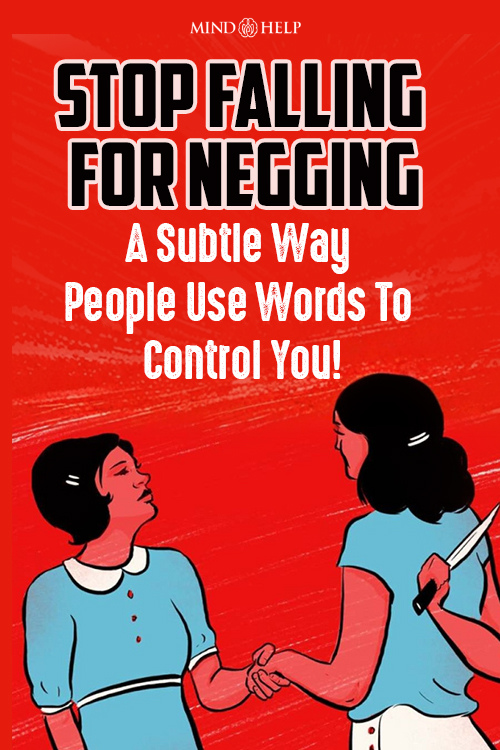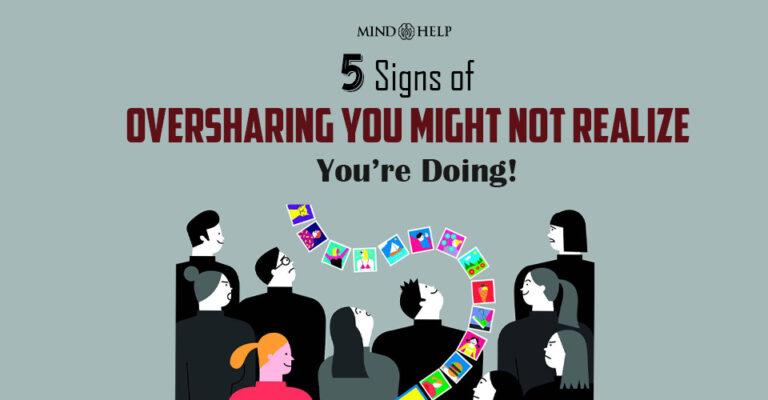In light of World Mental Health Day and the common discussions about stress and anxiety, it’s equally important to address a subtle yet damaging emotional issue: negging.
This is subtle, sneaky, and it can slowly chip away at your confidence. Unlike overt insults, this type of manipulation disguises itself as a joke, a (backhanded) compliment, or even concern, but its effects on your self-esteem are real.
Understanding how negging manifests in relationships and friendships is crucial for protecting your mental well-being. Continue reading to learn more about this form of psychological manipulation.
What Is Negging?

So, what is negging? It is when someone uses those sneaky compliments or subtle put-downs to make you feel bad about yourself. It seems harmless, but it’s on purpose – they’re trying to lower your self-esteem while looking charming
Some examples of negging might sound like:
- “You look great today! Why don’t you dress like that more often?”
- “You’re smart for someone who doesn’t like to read.”
- “I usually date models, but you’ve got something interesting about you.”
These negging examples seem harmless at first. But each one sends a quiet message: You’re not good enough. That’s how emotional manipulators gain power, by making you chase their validation.
Read More Here: 9 Overlooked Signs Of A ‘Silent Panic Attack’ You Need To Know
But What Is Negging In A Relationship?
Negging in a relationship can start subtly. Maybe your partner “jokes” about your looks, your intelligence, or your habits. They might say it’s just teasing, but their words always leave you feeling small.
Common examples of negging in relationships include:
- Comparing you to their ex: “She was more confident, but you’re more low-maintenance.”
- Minimizing your achievements: “Wow, you actually finished that project? Didn’t think you would.”
- Masking criticism as humor: “You’re cute when you try to sound smart.”
When negging in a relationship becomes a pattern, it erodes trust and self-worth. It can make you start questioning your own value and wondering if you’re being too sensitive. But you’re not, it’s manipulation.
In romantic settings, this type of manipulation can appear as flirtation or teasing. A partner might mask criticism as humor or “honest feedback,” but the effect is the same: increased self-doubt and dependence.
Examples in relationships include:
- Comparing you to an ex in a way that subtly diminishes your qualities.
- Minimizing your achievements: “Wow, you actually completed that project?”
- Teasing about your looks or style, then claiming you’re overreacting if you express discomfort.
Psychologists note that repeated exposure to these dynamics can trigger stress responses similar to more overt forms of abuse. Your mind starts associating affection with self-doubt, which can impact overall mental well-being.
It Can Happen in Friendships Too…
You might think negging only happens in dating, but negging in friendships is surprisingly common too. Sometimes, it hides behind sarcasm, competitiveness, or “friendly jokes.”
Maybe you’ve heard lines like:
- “You’re so brave for posting that picture, I’d never share something so unflattering!”
- “You’re lucky you don’t have a real job to stress about.”
- “You actually look nice today; what’s the occasion?”
Energy Takers vs Energy Givers: Learn What’s Fueling (And Draining You)
Read more here: https://mind.help/articles/energy-takers-vs-energy-givers/
Those are all negging examples, masked insults that make you feel insecure. If a friend consistently leaves you feeling uncomfortable, mocked, or small, that’s negging in friendships, not humor.
True friends celebrate your growth. They don’t use negging to make themselves feel superior.
Negging works because it creates confusion. You start to wonder if it was a joke or if you’re overreacting. That uncertainty makes it easier for the manipulator to control you.
Over time, you might change how you talk, dress, or behave just to avoid being criticized again. This is why recognizing this form of emotional manipulation early on is crucial, so that you can protect your self-esteem and emotional boundaries.
Read More Here: Energy Takers vs Energy Givers: Learn What’s Fueling (And Draining You)
How To Respond To Negging?
1. Call them out directly.
You can say, “That didn’t feel like a compliment,” or “I don’t appreciate comments like that.” This helps you reclaim your power.
2. Set clear boundaries.
If this continues, it’s okay to take a step back or end the relationship altogether.
3. Don’t absorb the blame.
Manipulators often respond with, “You’re too sensitive.” Don’t fall for it. Recognizing this manipulation tactic means understanding it’s not your fault.
4. Choose kindness, for yourself.
Whether in friendships or in relationships, remember that genuine care doesn’t come with backhanded comments or insults.
Read More Here: Reverse Gaslighting: 4 Subtle Signs That Leaves You Second-Guessing Yourself
On World Mental Health Day, it’s worth remembering that emotional harm can be invisible but no less damaging. Being mindful of how certain interactions affect your self-esteem, and taking steps to protect your mental well-being, is an important part of self-care.
You deserve relationships, friendships, and environments where encouragement comes without a side of doubt or subtle put-downs. Genuine connection uplifts, it doesn’t chip away at your confidence. Recognizing manipulation early empowers you to reclaim your mental space, and your peace of mind.








